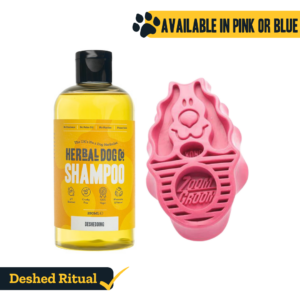It’s often said that dogs take after their owners, but many people underestimate just how similar dogs and people can be. Like people, dogs can suffer from allergies that severely impact their lives. Fortunately, there are several things you can do to treat allergies in dogs.
Confirm the allergy
Before you can work out how to proceed, you need to confirm that your dog is suffering from allergies and hone in on the specific allergen that’s causing them problems. Diagnosing allergies is a complicated process; you’ll need a vet to help you confirm them. They will usually start by ruling out any other conditions that might explain your dog’s symptoms. In some cases, the best way of testing for an allergy is to eliminate suspected allergens from the dog’s diet or environment and see if they improve.
Avoid the allergen
The best treatment for any allergy is to remove the allergen completely. If your dog doesn’t encounter the thing they’re allergic to, they won’t suffer an adverse reaction. Unfortunately, this isn’t always possible. However, if a simple change to your pet’s diet or environment can solve the issue, this is the best treatment.
Use different products
Have you started buying different food or shampoo for your dog recently? If their symptoms appear soon after you begin using a new product, that might explain why. However, dogs can develop allergies to allergens they have encountered before without any trouble. If their allergy is dermatological – affecting the skin – it might be worth trying a natural dog shampoo instead of your regular choice.
Allergy medication
If you can identify the precise nature of your dog’s allergy, you can plan the appropriate lifestyle or dietary changes to prevent future exposures to the offending allergen. However, this isn’t always possible or practical, and sometimes it’s hard to pinpoint the allergen responsible. Vets can prescribe allergy relief medication for dogs to reduce their symptoms and treat any secondary symptoms that arise due to the primary allergy.
Essentially, the treatment options for dog allergies are the same as they are for people. If your dog suffers a severe allergic reaction or their symptoms continue to get worse, you should take them straight to an emergency vet.




